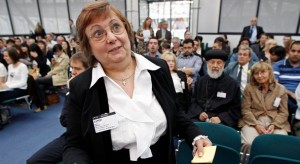By Mark O’Brien
Impunity Watch Reporter, North America
OTTAWA, Canada — Citing Iran’s record of alleged human rights abuses, the Canadian government severed diplomatic ties with the Middle Eastern country on Friday.

Canada closed its embassy in Tehran and ordered all Iranian diplomats to leave Ottawa. Other reasons for the decision included Iran’s support of the Syrian regime and its disputed nuclear program.
“[Iran] is among the world’s worst violators of human rights, and it shelters and materially supports terrorist groups, said a spokesperson for John Baird, the Canadian Foreign Affairs Minister. Baird has called Iran the “most significant threat to global peace and security in the world today.”
The move formally puts Iran as a state sponsor of terrorism under Canada’s Justice for Victims of Terrorism Act. A press release from Baird’s office indicated that Canadian diplomats in Tehran were no longer safe, also prompting Canada’s decision to close its embassy.
Not long after Canada announced its decision, Iran closed its embassy in Ottawa. Embassy Newspaper, a Canadian foreign policy newsweekly, reported that closure signs were posted on the front doors within 30 minutes. A small crowd also gathered outside the closed Iranian embassy after they reported had come for consular services.
“Several told Embassy they were concerned about their next steps, and several said they had family in Iran on their mind,” the newsweekly reported on its website. “One man expressed anger at the two governments that they couldn’t come to terms.”
Human rights activists were quick to praise Canada’s move.
“This needed to happen,” activist Shabnam Assadoliahi told the Toronto Sun. He had been lobbying the Canadian government to cut ties with Iran.
Israel also applauded Canada’s decision, calling it a model for other countries to follow.
“Iran is a threat to global peace and security,” said Israeli Ambassador Miriam Ziv. “Prime Minister [Stephen] Harper’s leadership serves as an example to the international community of the bold and moral measures needed to set clear red lines for Iran.”
Canada’s decision also came amid claims that Iranian officials in Ottawa were trying to infiltrate the Iranian community in Canada in efforts to stifle opposition to the Middle Eastern regime.
The relationship between Ottawa and Tehran had worsened since a Canadian photojournalist died in an Iranian prison in 2003. Since then, Canada has imposed sanctions on Iran, but many political observers have called the closure of embassies as the worst point in the relationship in years. That has caused some to worry about the fate of Canadians on death row in Iran.
For further information, please see:
Embassy Newspaper — ‘Upset and Scared’: Iranian Community in Shock as Canada Expels Diplomats, Shuts Down Embassy in Tehran — 8 September 2012
The Guardian — Canada Cuts Diplomatic Ties with Iran — 7 September 2012
The Toronto Star — Canada Closes Iran Embassy, Expels Remaining Iranian Diplomats — 7 September 2012
The Toronto Sun — Iranian Human Rights Activist Lauds Fed’s Decision to Close Embassy — 7 September 2012



